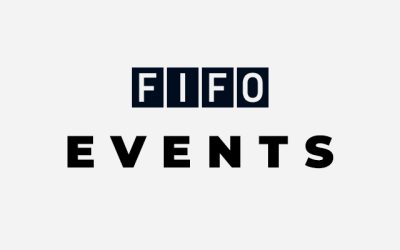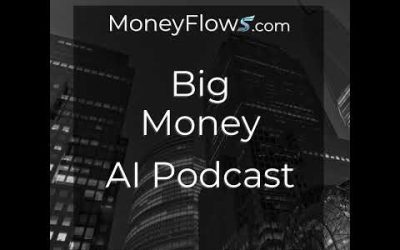by Louis Navellier
February 25, 2025
After President Trump held a 90-minute phone call with Russian President Vladimir Putin – the first time any U.S. official has talked with Putin since his invasion of Ukraine three years ago this week – we saw one quick reward, as Russia released hostage Marc Fogel, and the U.S. released Alexander Vinnik (an accused crypto-currency money launderer). Russia is also expected to release another U.S. hostage soon.
In brief, the Trump Administration is demanding the U.S. control Ukrainian ports and gets paid up to $500 billion from resources and rare earth minerals in exchange for the $300 billion the U.S. has provided Ukraine. A three-step plan is being negotiated that involves: (1) a cease fire, (2) a Ukrainian election and (3) the new Ukrainian government signing a peace agreement. In the meantime, Ukraine and the rest of Europe are expected to have little say in the peace agreement Russia and the U.S. are now negotiating.
As the relationship between the U.S. and Russia begins to thaw, our allies in Europe have not been very happy. Since President Trump talked to Vladimir Putin without consulting with our European allies, they have been complaining endlessly, especially in Britain, which made a 100-year partnership with Ukraine.
German Foreign Minister Annalena Baerbock called the U.S. scolding “A moment where Europe has to stand up.” French President Emmanuel Macron called for a European emergency meeting on Ukraine in Paris at the Elysée Palace. His purpose is to declare an official response to this U.S. diplomatic blitz. In response, U.S. Defense Secretary Pete Hegseth questioned Europe’s security commitments, while Vice President Vance questioned Europe’s fundamental democratic principles due to their media censorship.
The Trump administration has also asked European governments to fill out a questionnaire, clarifying whether or not they are willing to send troops into Ukraine as part of a peacekeeping force, and what other capabilities they can provide as part of a security guarantee for Ukraine. These leaders must also discuss how to increase their military spending and fund longer-term assistance for Kyiv. Most European countries have become resigned to the fact that they will have to boost their defense spending, but they were conspicuously silent on raising up any “peace keeping force” for defending Ukraine.
Adding insult to injury, President Trump called Zelensky a “dictator” and warned that he “better move fast or he is not going the have a country left.” Ouch! Trump also described Zelensky as “a modestly successful comedian” that “talked the United States of America into spending $350 billion dollars to go into a war that couldn’t be won.” Then Trump expanded his list of insults to say, “This war is far more important to Europe than it is to us …We have a big, beautiful ocean as separation …,” adding that Zelensky “refuses to have elections, is very low in Ukrainian opinion polls, and the only thing he was good at was playing Biden like a fiddle.” Zelensky responded by saying that Trump “is living in this disinformation bubble.” I think it is fair to say that any relationship between Trump and Zelensky is over.
In the other major war, in the Middle East, peace negotiations are now underway in Saudi Arabia, where U.S. Secretary of State Marco Rubio and Russian Foreign Minister Sergey Lavrov lead the negotiations.
Europe and Ukraine seem in shock that the Trump Administration has excluded them from any and all negotiations with Russia to end the dual wars in Ukraine and the Middle East. But President Trump just keeps insulting Ukrainian President Volodymyr Zelensky, saying, “You should have never started it. You could have made a deal.” Zelensky ironically ran on a making a peace deal with Russia, but Britain’s Prime Minister Boris Johnson and the Biden Administration advised Ukraine to reject Russia’s deal.
Europe is also chafing under threats of reciprocal tariffs coming within 180 days, to be implemented by incoming Commerce Secretary Howard Lutnick, who was finally sworn into office last Friday. The fact that President Trump wants to onshore a lot of the manufacturing from our allies (if they do not lower their tariffs to U.S. levels) is making many countries that erected these trade barriers extremely nervous. Frankly, all they have to do is lower their tariffs and everyone will prosper. Otherwise, complaints from the European Union (EU) will likely be ignored by the Trump Administration and the EU will suffer.
European politics are changing fast. For example, Britain’s Labour Party and Prime Minister Keir Starmer are losing popularity, while Nigel Farage’s Reform UK party is gaining momentum on the Conservative Party.
The German election is over. The CDU/CSU party lead by Friedrich Merz won 28.52% of the vote, while the AfD party received 20.8% of the vote. This was a major victory for the two most conservative parties in Germany. Normally, the CDU/CSU and AfD parties would form a ruling coalition with the help of a third party. However, Merz and the other major parties in Germany, namely the SPD (16.41% led by Chancellor Olaf Scholz), Grune/Green (11.61%) and Die Linke (8.77%) vowed to not work with the AfD party.
In the event that incoming Chancellor Merz does not include the AfD in its ruling coalition, Germany will become dysfunctional like France, where President Macron represents a minority and cannot work with Marine Le Pen, who’s National Party controls Parliament. Furthermore, the criticism from Vice President J.D. Vance that Germany is suppressing democracy and the will of the people may intensify and be repeated by President Trump. As a result, Germany is now under an international spotlight and it will be interesting if incoming Chancellor Merz will ignore his previous pledge and include AfD party in his ruling coalition.
French President Macron is a classic example of why a minority leader cannot get anything done, since Marine Le Pen controls a majority in the French Parliament and is not working with any Prime Minister Macron nominates. Germany will have a new chancellor soon, and it will be interesting if the nuclear plants will be reactivated to stem the manufacturing exodus from Germany due to high electricity costs.
In the economic sphere, Bloomberg reported that economists following the European Central Bank (ECB) now expect the ECB to slash key interest rates to 1.75% no later than 2026. That essentially means the economists now expect another four 0.25% key interest rate cuts, since the euro-zone is in a recession, mostly due to France and Germany’s economic woes. The Bank of England is also expected to cut key interest rates due to the fact that Britain is also in a recession. This coordinated collapse in global yields will likely cause our Fed to react to falling Treasury bond yields by cutting rates, too. That’s why I have been saying that I expect up to four key interest rates this year due to the global collapse in interest rates.
Examples of the economic duress in Europe include auto parts supplier Continental, which announced that it would cut 3,000 jobs due to a challenging market environment. Less than half of the Continental job cuts will be in Germany. Furthermore, Germany’s Commerzbank announced 3,900 layoffs. Mercedes also announced that it will cut jobs in Germany and shift some of its production to lower-cost countries as it prepares for another challenging year. Since these are just the latest of the major German corporate layoffs being announced, I suspect these layoff announcements influenced Sunday’s German election.
Further adding to the duress in Europe is that President Trump said he would likely impose tariffs on automobile, semiconductor and pharmaceutical imports of around 25% as soon as April 2nd. When asked about tariffs on pharmaceutical drugs and semiconductor chips, Trump said, “It’ll be 25% and higher, and it’ll go very substantially higher over the course of a year.” Trump also said that he wanted to give companies “time to come in” before announcing new import taxes.” Trump concluded by saying, “When they come into the United States and they have their plant or factory here, there is no tariff, so we want to give them a little bit of a chance.” In other words, Trump is trying to lure companies to bring plants here.
One other interesting development in the tariff debate is that Mexico’s GDP contracted 0.6% in the fourth quarter, the largest quarterly decline in Mexico’s GDP since 2021. This essentially means that the Trump Administration will have more leverage over Mexico when negotiating security agreements and tariffs.
With all these tariff threats against weaker economies, we must remember that we have our own economy to mind, despite all the problems in Europe and elsewhere. The market told us that last Friday, and some economic statistics said the same thing: On Friday, the National Association of Realtors announced that January home sales declined 4.9% to an annual pace of 4.08 million. The consensus was a 2.6% decline. Typically, home sales pick up in the spring when the weather improves, so home sales may improve soon.
The post 2-25-25: As U.S. Relations Thaw with Putin, a Chill Falls Over Europe appeared first on Navellier.





